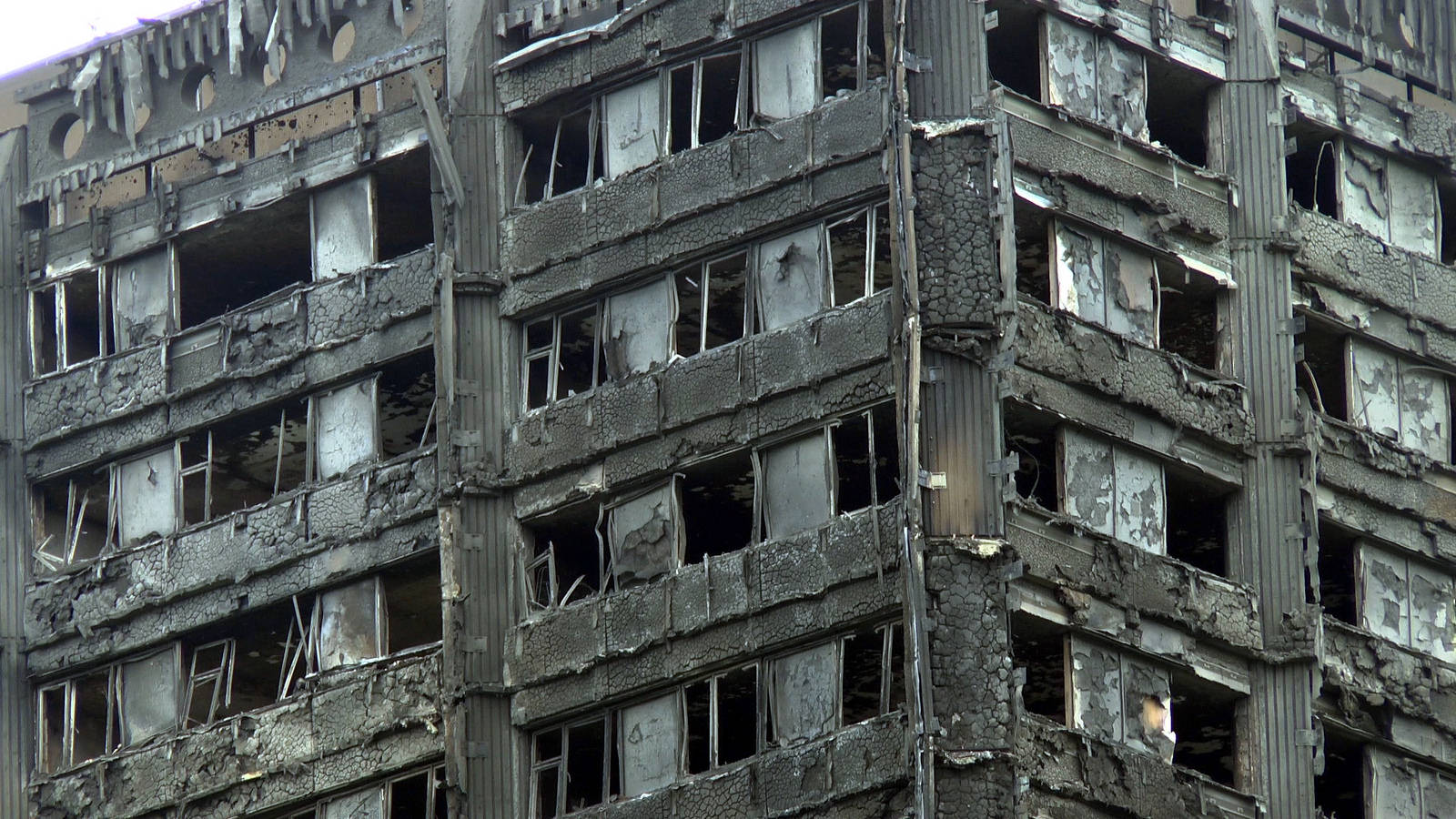Grenfell Tower: One year on
On Thursday last week (June 14) thousands marched silently through the streets surrounding Grenfell Tower as many have done on the 14th of each month since the fire. Last week marked the one year anniversary of the devastating blaze in which 70 people lost their lives and two died later.
A commemorative service took place earlier in the day at the nearby St Helen’s Church: 72 seconds of silence was observed and after the service and 73 doves were released from baskets to remember all those who had lost their lives and one more to represent unknown victims of the fire.
The fire was reported at the 24-storey block in North Kensington at 00.54 BST on 14th June 2017 and the fire started in flat 16 on the fourth floor. The blaze’s ‘unexpected’ ferocity led to many questions about the recent multi-million pound refurbishment of the tower and in particular, the cladding used.
Prime Minister Theresa May ordered a full public inquiry the day after the fire. ‘We need to know what happened, we need to have an explanation of this,’ she said at the time. She also ordered that Kensington and Chelsea Tenant Management Organisation (KCTMO), the organisation which managed Grenfell Towers as part of the Lancaster West Estate, be stripped of responsibility in August 2017.
One year on, there is an overwhelming sense that such a disaster must never be allowed to happen again. In the days following the Grenfell Tower fire, Inside Housing launched the Never Again Campaign to call for immediate action to implement the learning from the Lakanal House fire, and a commitment to act without delay on lessons learnt from the Grenfell Tower disaster.
The campaign called on landlords to take immediate action to check and remedy dangerous cladding on their buildings and on the government to immediately update and clarify building regulations. The campaign has received across the board support from the National Housing Federation to the Chartered Institute of Housing.
Debbie Larner, head of practice at the Chartered Institute of Housing, said: ‘One year on from the terrible fire at Grenfell there are still many unanswered questions and areas where clarification is urgently needed. That is why it is important to support the Inside Housing campaign. If we are to truly honour those who lost their lives, we must keep going until we have systems and processes in place that will ensure another similar tragedy never happens again.’
One year on, Inside Housing has now extended the aims of the campaign in the light of information that has emerged since. It has called on the government to fund the removal of cladding which was a promise finally made by the Theresa May in May and called for ministers to ban combustible materials of all types on the outside of high rise buildings. Social landlords have been asked to commit to remove dangerous cladding by the end of 2018 and publish risk assessments for all high rise blocks.
One year on has also seen the start of the Grenfell Inquiry, chaired by retired judge Sir Martin Moore Bick, who was chosen by the Prime Minister to lead the public inquiry in June 2017. There are two phases of the inquiry – the first to examine how the blaze developed and the second to look at how the tower became exposed to the risk of a major fire.
According to the inquiry, 547 individuals and organisations have been granted ‘core participant’ status including all the families of those who died in the blaze. Seven days of commemoration hearings began on Monday 21st May 2018 with the first tribute on the opening day heard from the father of a baby stillborn after his parents escaped the blaze.
The inquiry will also hear from survivors, Grenfell residents, firefighters and fire officers there on the night and expert witnesses. The inquiry is scheduled to hear from first expert witnesses on 18th June, followed by evidence from firefighters and fire officers in late June and early July. Survivors, the bereaved and local residents are scheduled to give their evidence at the beginning of September.
Part two of the inquiry will focus on the construction, refurbishment and management of the building prior to the fire. Following pressure from survivors and residents, the Prime Minister agreed in May that two experts would sit with Sir Moore Bick to assist him in phase two of the Inquiry.
Deborah Coles, director of INQUEST welcomed the news but said it was ‘disappointing that it will only be for phase 2 of the Inquiry’. ‘A diverse panel can help to provide some legitimacy that the Inquiry has lacked. It will also go a long way to regain the trust and confidence of those directly affected,’ Coles said. ‘Grieving and traumatised people should never have been put in a position where they had to fight for their right to truth and justice. Any future Inquiry into an injustice must ensure diversity of culture and experience of those involved from the outset.’
Published June 18, 2018






